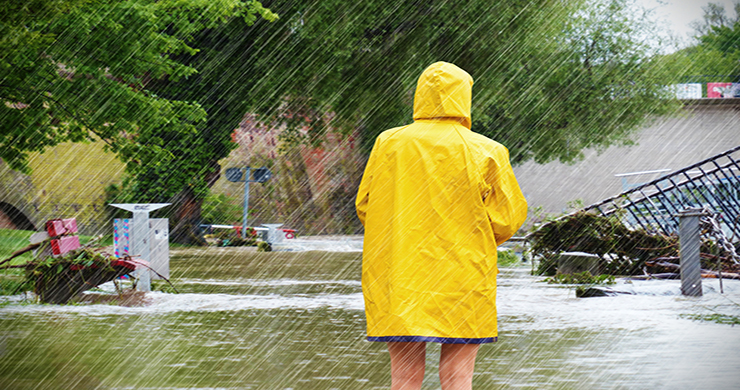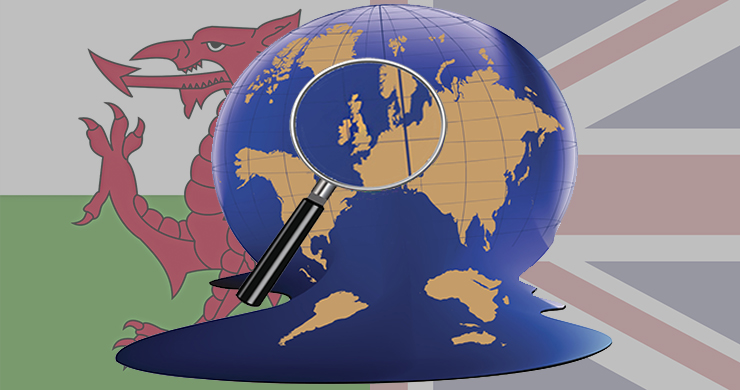Changing Weather and Climate Patterns
Another Poor Summer - Changing Weather and Climate Patterns
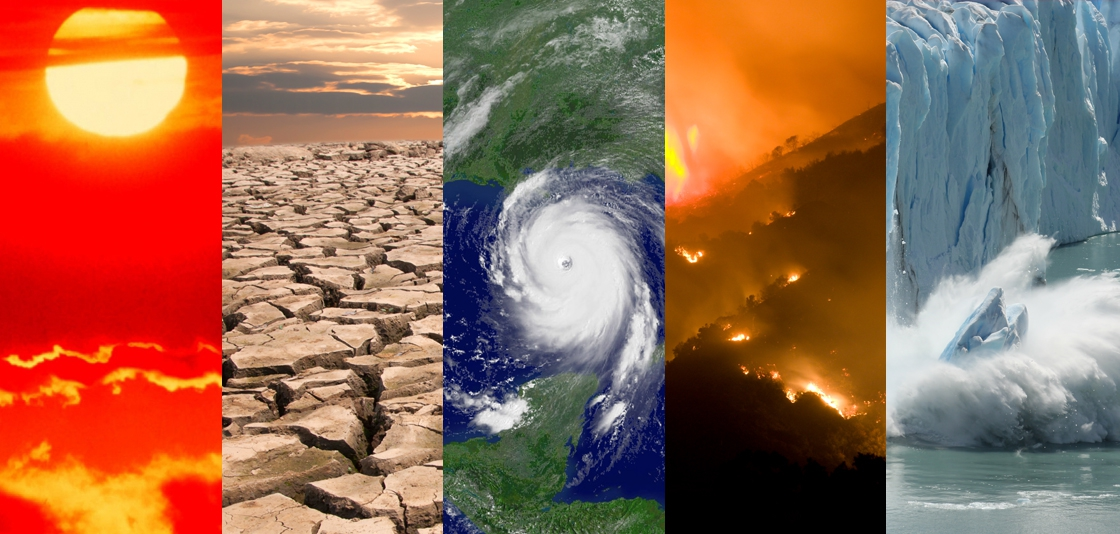
http://www.noaa.gov/news/international-report-confirms-2016-was-warmest-year-on-record-for-globe
Starter Activity
- Decide on a single adjective that best describes each image.
- Decide on a subject or noun for your sentence.
- For each image write a complete sentence that includes your subject and adjective.
Summer Holiday Washout!
Again!
As the summer school holiday ended teachers and pupils looked out of the windows of Wales at the gloomy skies and the dripping of rain off trees. Summer 2017.
Summer holiday 2017 felt like day after day of showers punctuated by longer days of rain.
It may seem that we wait ten months for the summer to arrive and when it does it is rain, rain, rain. But is this true?
Why is the news full of stories of:
- Global warming
- Record temperatures
- Immense wildfires in drought struck Europe
- People dying from the heat?
Sadly our gloomy summer weather and storms seems to be how climate change affects Wales for the majority of years.
Further East and South in Central and Southern Europe deadly heatwaves, droughts and vast fires are becoming the new normal.
In GitN this edition we are going to investigate what we have just experienced for another summer in Wales and other big climate news stories.
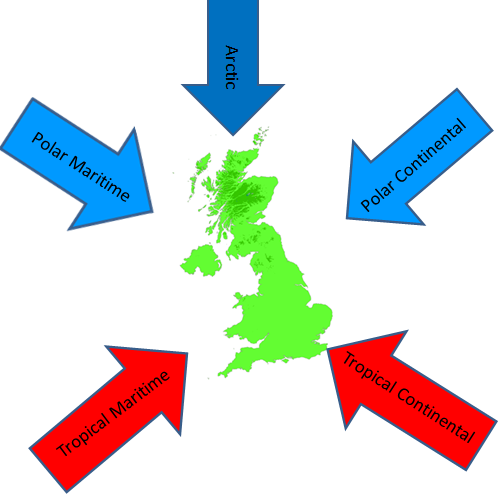
Air Masses
- Large bodies of air move from place to place.
- These large bodies of air are called air masses.
- They carry with them the characteristics of their source regions.
- Arctic air is very cold
- Polar air is cold
- Tropical air is warm
- Continental air is dry
- Maritime air is wet
Different types of air do not mix easily; the boundary between two different types of air is called a front.
During recent summers the UK has been caught in a constant flow of Polar Maritime air which in summer time brings cool temperatures and showers of rain.
It has also been hit by frequent rain storms.
This is not what we would expect.
Why Have Things Changed?
Air of different types does not mix easily; there is a boundary between them which we call a front.
Along the front between cold polar air and warm tropical air rain and wind storms develop.
We call these storms frontal depressions.
Normally in our summertime we would expect the front to be north of the UK.
That means the storms along the front and the cool showery polar air is north of us and we would be in the warmer tropical air.
BUT
- In recent summers the front along with the storms and the cool showery polar air has been over southern Britain meaning that Wales sits in the cool wet air and the paths of the rain and wind storms.
- You can see the moving of the Polar Front and the fast currents of wind high in the sky above it here.
Contains public sector information licensed under the Open Government Licence v3.0
The position of the Polar Front between the warm tropical air and the cold polar air is controlled by large areas of different air pressure.
Air pressure is the weight of air pressing down on the surface of the Earth.
Sinking air causes high air pressure.
Rising air causes low air pressure.
When the difference between the area of high and low pressure gets bigger the Polar Front gets pushed over us and we get our showery wet summer holidays.
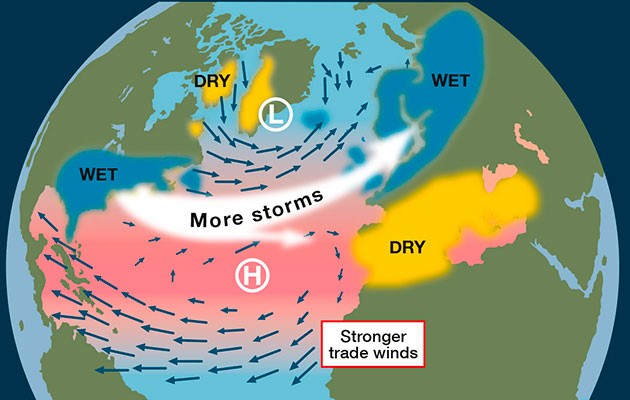
Climate Change?
- More heat around the Equator increases the high pressure area.
- Warmer surface temperatures around the Arctic causes more air to rise lowering the already low pressure.
- We get more showery and rainy summers.
However things are much worse for Southern Europe
- The changes mean that Southern Europe suffers:
- Extreme heatwaves
- Droughts
- Wildfires
- This summer the news said that things could start getting a lot worse.
- Scientists think that extreme weather could kill up to 152,000 people yearly in Europe by 2100 if things stay the same with climate change.
- That is 50 times more deaths than now
- Two in three people in Europe will be affected by disasters by 2100, against a rate of one in 20 at the start of the century.
Student Activity
- Complete these sentences describing what happens when the following air masses pass over a picnic in Wales in summer time.
Concentrate on using strong adjectives.
a. We were at the picnic when Polar Maritime air crossed over us and the weather changed to ………
b. We were at the picnic when Polar Continental air crossed over us and the weather changed to ………
c. We were at the picnic when Tropical Maritime air crossed over us and the weather changed to ………
d. We were at the picnic when Tropical Continental air crossed over us and the weather changed to ………
|
After reading all three articles and carrying out the activities, use the accompanying A3 sheet to begin an investigation into changing patterns of climate and weather in Wales and beyond. |
Teacher Box
The resource is designed to be used as whole class resource from the front of the classroom on the projector/interactive whiteboard. The various graphics should be supported by teacher exposition based on the text which will not be readable in permitted time to the vast majority of pupils), following this it is ideal that the students have access to the online resource in order to work on the activity sheet (designed to be printed on A3 size paper). Ideally these activities will be supported by the use of a network room, tablets/laptops or students own phones/devices if permitted. However the activities are also designed to be used in a typical one hour lesson with the teacher input using the resource from the front of the classroom alongside the resource sheet. Students can then be set a homework task to study the three articles in advance of the following lesson.
The resource and accompanying sheet is designed to support the LNF framework while giving students key geographical knowledge about places in relation to changing patterns of weather & climate in Wales.
Pupil Box
Either in class or at home read and complete the activities in the online resource article and in the linked articles in this edition of Geography in the News. Attempt to complete all of the activities in the resource sheet.
What you will learn:
- You will increase your knowledge about changing patterns of weather & climate in Wales.
- You will increase your understanding of how these factors may affect human beings and human activities
- You will have you the opportunity to learn or practice important literacy and numeracy skills.
- You will learn new geographical terms highlighted in purple these should be learned and added to a glossary. A glossary is a list of words and their meanings. You could have one in the back of your geography exercise book, if you have a planner it is probably a good place to keep a glossary, or you may keep a separate glossary or word book. A good glossary helps you build your vocabulary and your literacy. Research meanings using related article content, discussion or a dictionary (either online or a book).
